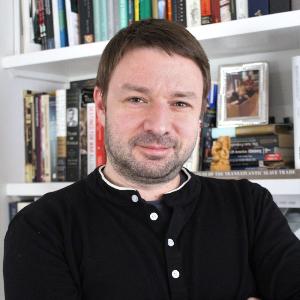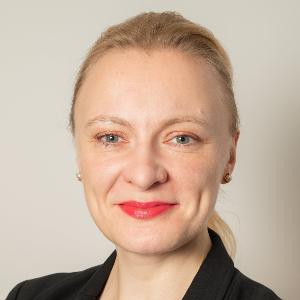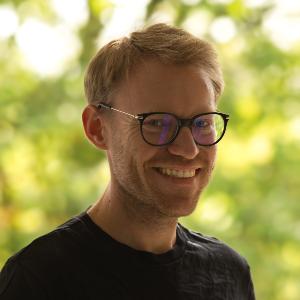Prof. Dr. Dominik Markl

© Studio NEXT
Hebrew Bible and its Ancient Near Eastern Contexts
Dominik Markl is Professor of Hebrew Bible/Old Testament studies at Innsbruck University, Austria, since March 2023.
Previously, he has been appointed Jesuit Chair at Georgetown University in Fall 2022, Professor at the Pontifical Biblical Institute in Rome, and taught at Heythrop College (University of London), Hekima College (Catholic University of Eastern Africa) as well as the Jesuit School of Theology (Berkeley, CA).
In 2008-10 he was Alexander von Humboldt Research Fellow at Ludwig Maximilian University of Munich, where he completed his Habilitation thesis Gottes Volk im Deuteronomium ([The People of God in Deuteronomy], Harrassowitz 2012). The volume followed his doctoral dissertation at the University of Innsbruck on Der Dekalog als Verfassung des Gottesvolkes ([The Decalogue as the Constitution of the People of God], Herder 2007).
He is Old Testament editor of the journal Biblica and co-editor of Beihefte zur Zeitschrift für Altorientalische und Biblische Rechtsgeschichte (with Eckart Otto and Guido Pfeifer).
Markl has published widely on constitutional theory in the Pentateuch, the emergence of monotheism, cultural memory, trauma theory, and the Bible’s political reception history. He has contributed to reference works such as the Oxford Research Encyclopedia of Religion, the Cambridge Companion to the Bible and Ethics, the Oxford Handbook of the Historical Books of the Hebrew Bible, and the Encyclopedia of the Bible and its Reception.
- Address
University of Innsbruck
Department of Biblical Studies and Historical Theology
Karl-Rahner-Platz 1
6020 Innsbruck
Austria - Phone
+ 43(0)512/507-8603 - Email
dominik.markl@uibk.ac.at - Websites
https://biblico.academia.edu/DominikMarkl
https://www.uibk.ac.at/bibhist/markl/index.html.en
Dr. Vladimir Petrović

© Vladimir Petrović
Contemporary History
Vladimir Petrović is a permanent Senior Reseracher at the Institute for Contemporary History Belgrade and the head of its Digital Center.
He researches mass political violence and strategies of confrontation with its legacy. He graduated from Contemporary History (Faculty of Belgrade: BA and MPhil) and Comparative history of Central and Southeastern Europe (Central European University: MA and PhD), completing his postgraduate studies at the NIOD Institute for War, Holocaust and Genocide Studies, Amsterdam. He taught at Boston University and was a recurrent visiting professor at Central European University.
Petrović's doctoral project, which started at CEU, is published as The Emergence of Historical Forensic Expertise: Clio takes the Stand (Routledge, 2017). The book examines the role of historians and social scientists as expert witnesses in some of the most dramatic legal encounters of the 20th century. Petrovic explores the intersection between history and law, both in the International Criminal Tribunal for the former Yugoslavia and in the Serbian War Crimes Prosecutor's Office (CFCCS keynote lecture).
He has served as Investigator at the Serbian War Crimes Prosecutor’s Office, Serbia as Intern at the LRT OTP, International Criminal Tribunal for the former Yugoslavia, Den Haag, the Netherlands. He has published extensively on ethnic cleansing in the Balkans and attempts to undo its legacy, as well as on the history of nonalignment during the Cold War and the collapse of Yugoslavia. He is currently working on the discursive history of mass violence.
- Address
Institute for Contemporary History
Trg Nikole Pašića 11
Beograd 11000
Serbia - Phone
+011 339‑8613 - Email
vladimir.lj.petrovic@gmail.com - Websites
https://isi.co.rs/saradnici/dr-vladimir-petrovic-visi-naucni-saradnik/
https://isi.academia.edu/VladimirPetrovic - Secondary Affiliation
Democracy Institute
Central European University
Nádor u. 15
1051 Budapest
Hungary
https://www.ceu.edu/unit/ceu-democracy-institute
Prof. Dr. Juliane Prade-Weiss

© Juliane Prade-Weiss
Comparative Literature
Juliane Prade-Weiss is Professor of Comparative Literature at Ludwig Maximilian University Munich, acting Department Head, and board member of the ProEnviron Program of the Rachel Carson Center for Environment and Society.
2007-17, she was an Assistant Professor of Comparative Literature at Goethe-University Frankfurt, where she earnedher Dr. phil., published as Sprachoffenheit: Mensch, Tier und Kind in der Autobiographie [Openness for Language: Humans, Animals, and Infants in Autobiography], Königshausen & Neumann 2013).
2017-19 she has been a DFG research fellow at Yale University to complete her Habilitation thesis, published as Language of Ruin and Consumption: On Lamenting and Complaining (Bloomsbury, 2020).
2019-20 she has been EU Marie Skłodowska Curie fellow at Vienna University with the project "Complicity: A Crisis of Participation in Testimonies of Totalitarianism in Contemporary German-language Literatures" (portrayed in CORDIS).
She has published on texts in German, English, French, Latin, Ancient Greek, Czech, and Russian in the fields of European and global East-West-narratives, language and violence, affect and emotion theory, memory culture and politics, psychoanalysis, literature and the law, as well as environmental studies.
She is member of two consortia:
the LMU Center for Advanced Studies Research Focus Order Contestation: The EU and Beyond, and the Deutsche Forschungsgemeinschaft (DFG) Research Network Complicity: Enfoldings and Unfoldings.
- Postal Address
Ludwig Maximilian University Munich
Department of Comparative Literature
Schellingstrasse 3
80799 Munich
Germany - Office Address
Ludwig Maximilian University Munich
Department of Comparative Literature
Schellingstrasse 3, Room R 417
80799 Munich
Germany - Phone
+49 (0)89 2180-3185 - Email
juliane.prade-weiss@lmu.de - Websites
https://www.sprachlit.lmu.de/avl/de/fach-und-institut/personen/kontaktseite/juliane-prade-weiss-fb31dff9.html
https://lmu-munich.academia.edu/JulianePradeWeiss
Prof. Dr. Timothy Williams

© Sandie Lund-Steinheuer
Political Science: Insecurity and Social Order
Timothy Williams is trained in Comparative Politics and Conflict Studies. His research and teaching focuses on insecurity and social order formation. His research engages with conflict, violence, and the politics of memory, building on qualitative fieldwork in Southeast Asia and East Africa, and NLP and big data methods in digital space in collaboration with colleagues. His first book The Complexity of Evil. Perpetration and Genocide deals with motivations of perpetrators to engage in genocide. Another book is under contract with Bristol University Press and will take a comparative look at the politics of memory in different post-conflict countries and analyze how power can be exercised from attributions of roles (perpetrator, victim, hero, ....).
After studying political science in Mannheim and comparative politics at the London School of Economics, Timothy Williams completed his PhD at the Center for Conflict Studies at Philipps University in Marburg. This was later awarded the Philipps University Marburg Doctoral Award and the Gert Sommer Award of the Forum Friedenspsychologie.
He is Co-Chairman of the RISK Research Center at University of the Bundeswehr Munich, and Senior Researcher in the project SPARTA: Society, Politics and Risk with Twitter Analysis, where he leads the use case on riots, applying his expertise on violence dynamics and perpetrators to SPARTA’s computational social science approaches.
Timothy Williams is vice president of the International Association of Genocide Scholars.
- Postal Address
University of the Bundeswehr Munich
Department of Political Sciences
Werner-Heisenberg-Weg 39
85577 Neubiberg - Phone
+49 (0)89 6004-2408 - Email
timothy.williams@unibw.de - Websites
https://www.unibw.de/politikwissenschaft-en/professors/jprofessorship-insecsocord/junprofinsecsocorder
